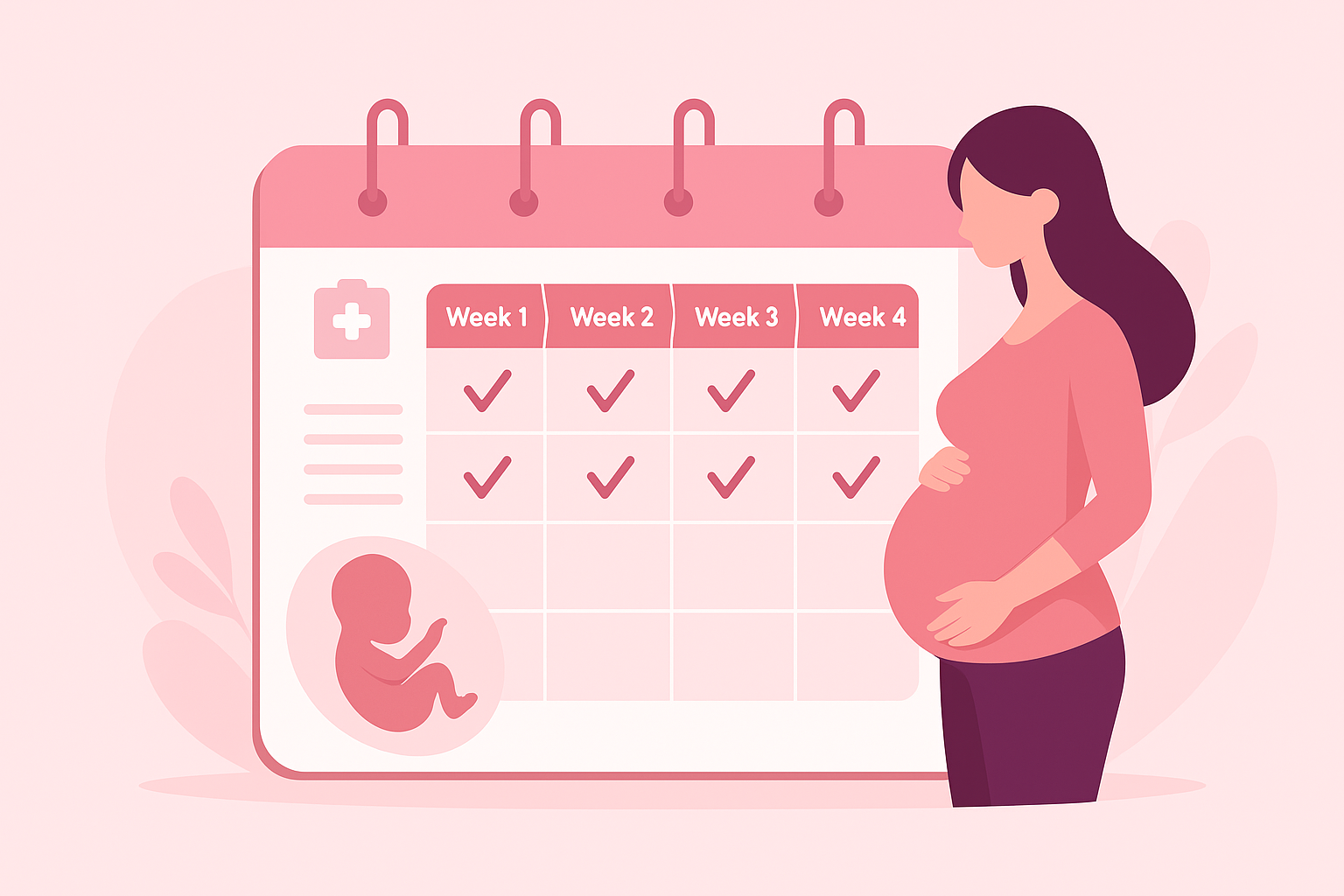
How to Calculate Pregnancy Weeks
One of the first questions expectant parents ask is, “How many weeks pregnant am I?” Understanding how pregnancy weeks are calculated is essential for tracking your baby’s growth, scheduling prenatal visits, and preparing for your due date.
📅 Method 1: Last Menstrual Period (LMP)
The most common method is counting from the first day of your last menstrual period (LMP). Doctors add 280 days (40 weeks) to this date to estimate your due date. This assumes a 28-day cycle with ovulation around day 14.
🧪 Method 2: Ultrasound Scan
An early ultrasound (around 8–12 weeks) can measure the embryo or fetus and provide a more accurate estimate of gestational age, especially if your cycles are irregular.
❤️ Method 3: Conception Date
If you know the exact date of conception (through IVF or ovulation tracking), pregnancy weeks can be counted from that point. However, doctors usually calculate from LMP for consistency.
⚖️ Which Method is Most Accurate?
While LMP is the standard, ultrasound dating in the first trimester is considered the most reliable. As pregnancy progresses, natural growth variations make later ultrasounds less accurate for dating.
✅ Key Takeaways
- LMP method: adds 280 days to first day of last period
- Ultrasound: most accurate in early pregnancy
- Conception date: useful in IVF or exact tracking
- Always confirm dates with your doctor
⚠️ Disclaimer: This article is for educational purposes only and should not replace medical advice. Always consult your doctor for personal guidance.